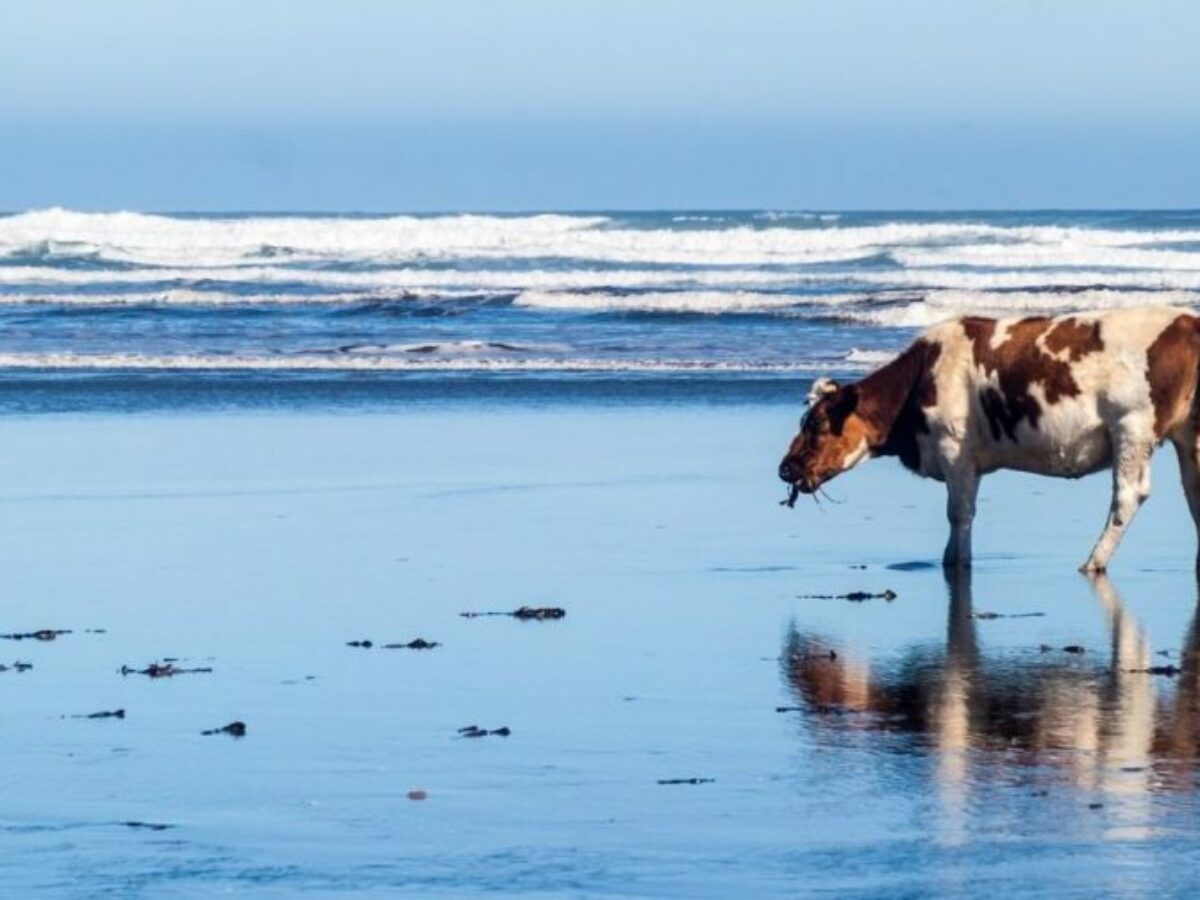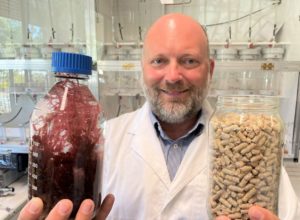Flinders in R&D partnership with WA asparagopsis startup

SeaStock, which recently became the sixth company with a licence to produce asparagopsis extract-based livestock feed, will undertake a project on “production and processing techniques” with Flinders University.
Asparagopsis is a red seaweed native to Australia and New Zealand, and the subject of years of research led by CSIRO and James Cook University investigating the methane-reducing properties of the plant when fed to ruminant animals, such as cows, sheep and goats.
SeaStock was recently named as the first Western Australian-based company, the third in Australia, and the sixth globally to have been awarded a licence from FutureFeed to sell asparagopsis in supplements.
SeaStock said it was currently in R&D partnerships with Australian universities and four regional Aboriginal corporations with access to WA coastal areas. The Flinders team collaborating with the company is led by Professor of Aquaculture Jian Qin.
“This is a huge milestone for SeaStock and WA, which is in the box seat to establish itself as a leading player in the burgeoning native seaweed industry,” said the company’s managing director Tom Puddy of the recent licencing agreement.

Picture: SeaStock Managing Director Mr Tom Puddy with samples of the red seaweed and livestock pellets. (Flinders University.)
“The science behind the methane-reducing power of Asparagopsis is strong and proven to achieve significant environmental benefits through reducing carbon emissions.
“Reducing methane in animal production enables meat and dairy producers to meet growing demand from low-carbon food consumers.”
FutureFeed was launched in August 2020, and its backers include GrainCorp, Harvest Road, Woolworths and CSIRO.
While there is evidence that small amounts of the seaweed’s extract will drastically cut methane emissions created through animals’ burps and farts, more evidence is being gathered on its effects in real-world situations.
Last month the federal government announced six grants totalling $4 million through the Methane Emissions Reduction in Livestock (MERiL) program, with four going to asparagopsis-based projects. These seek to gather data to “help farmers make informed decisions on technology adoption in their day-to-day operations.”
SeaStock’s current focus is on “sampling, cultivation and growth trials across multiple coastline sites” in its home state, while it raises further capital. It expects to be cultivating and processing before the end of the year.
The company partnered with Flinders University in early 2021, said the university in a statement, and has involved “a feasibility study and has scoped a plan to deliver an effective technical solution for production, market entry and commercialisation by SeaStock” since then.
Picture: CSIRO
Subscribe to our free @AuManufacturing newsletter here.
Topics Manufacturing News
@aumanufacturing Sections
Analysis and Commentary Awards casino reviews Defence Gambling Manufacturing News Online Casino Podcast Technology Videos





